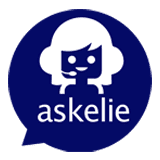Custom GPTs promised to revolutionize how businesses leverage AI, offering tailored solutions for everything from customer service to data analysis. But beneath the surface of convenience lies a troubling reality. Many of these tools are fundamentally not secure, exposing organizations to data breaches, prompt leaks, and sophisticated phishing attacks that could compromise your entire operation.
If you’re using Custom GPTs in ChatGPT for business purposes, this post will reveal the critical security vulnerabilities you need to understand and what you can do to protect your organization.
The Promise vs. Reality of Custom GPT Security
When OpenAI launched Custom GPTs, the pitch was compelling: create your own specialized AI assistants tailored to your specific needs, all while maintaining privacy and security. Many businesses jumped at the opportunity, building custom bots for internal operations, customer interactions, and sensitive data processing.
The reality, however, tells a different story.
Recent empirical studies from 2025 have uncovered alarming findings. Research published in arXiv reveals that approximately 95% of custom GPTs display inadequate security measures against common threats. These aren’t theoretical vulnerabilities. They’re actively being exploited in the wild, with security researchers demonstrating how easily custom GPT prompts, files, and knowledge bases can be extracted or manipulated, even when creators intended to keep them private.
Understanding the Security Landscape for Custom GPTs
The Foundation is Cracked
Custom GPTs inherit all the vulnerabilities present in their foundational models. Think of it like building a house on unstable ground: no matter how secure your walls and doors are, if the foundation is compromised, the entire structure is at risk.
These inherited weaknesses include susceptibility to prompt leakage attacks, where malicious actors can extract the underlying instructions that power your custom GPT, and roleplay attacks, where the AI can be manipulated into behaving in ways that violate its intended constraints.
The Integration Trap
One of the most attractive features of Custom GPTs is their ability to integrate with external tools and APIs. Need your GPT to check inventory systems? Pull customer data? Execute code? These capabilities sound powerful, but they open dangerous pathways for data exfiltration.
When web access, external APIs, or code execution features are enabled, Custom GPTs become potential data highways leading straight out of your organization. Security analysts at Palo Alto Networks and other firms have documented cases where poorly configured integrations allowed proprietary data to leak to external servers, often without the organization’s knowledge.
The Data Privacy Minefield
What Happens to Your Uploaded Files?
When you upload documents, spreadsheets, or other files to a Custom GPT, where does that data actually go?
The answer is more complicated—and concerning—than most users realize.
Uploaded files and chat history can be exposed if not strictly controlled, particularly when using public or shared GPTs. While OpenAI claims not to use API-passed data for training their models, vulnerabilities persist around conversation data, integrations, and sharing permissions. The fine print matters, and most organizations haven’t read it carefully enough.
The Marketplace Risk
The launch of OpenAI’s GPT marketplace created a new attack vector that many security professionals didn’t anticipate. Malicious actors have created custom bots that appear legitimate, using professional-sounding names and descriptions to lure unsuspecting users.
These fraudulent GPTs can be designed to harvest sensitive information, redirect data to external servers, or even serve as phishing platforms. According to Dark Reading’s analysis, the marketplace has become a hunting ground for cybercriminals looking to exploit organizations that haven’t properly vetted the tools they’re using.
Real-World Attack Scenarios
Prompt Extraction Attacks
Imagine you’ve spent weeks perfecting a Custom GPT for your sales team, encoding your unique methodology, competitive insights, and proprietary approaches into its instructions. A competitor could potentially extract those prompts through carefully crafted queries, essentially stealing your intellectual property with nothing more than clever questioning.
Security researchers at Wired demonstrated this exact vulnerability, showing how custom chatbots could be manipulated to reveal their underlying prompts through prompt injection attacks. The techniques are surprisingly simple, requiring no advanced hacking skills—just an understanding of how large language models process instructions.
Data Exfiltration Through Actions
Custom GPTs with enabled “Actions” (the ability to interact with external APIs) present particularly severe risks. A malicious GPT in the marketplace could be configured to send any data you share with it to an attacker-controlled server. You might think you’re using a helpful productivity tool, but you’re actually feeding sensitive information directly to bad actors.
This isn’t theoretical. The Moonlight research team documented multiple instances of Custom GPTs in the marketplace that were explicitly designed to exfiltrate data, masquerading as legitimate business tools.
The Roleplay Vulnerability
Another attack vector involves manipulating the GPT through roleplay scenarios. By framing requests as hypothetical or game-like situations, attackers can sometimes bypass safety guardrails and extract information or behaviors that should be restricted.
With 95% of Custom GPTs showing inadequate protection against these roleplay attacks, the risk is widespread and systematic, not limited to a few poorly designed implementations.
The Enterprise Illusion
Many organizations believe that upgrading to ChatGPT Enterprise or Team plans automatically solves these security concerns. While enterprise plans do offer enhanced features like encryption, compliance controls, and account-level privacy, they don’t eliminate the fundamental vulnerabilities in Custom GPT architecture.
Enterprise features provide a security foundation, but they’re not a complete solution. Organizations still need to implement strict access controls, carefully vet any Custom GPTs before deployment, and maintain ongoing security monitoring. The encryption and compliance certifications matter, but they won’t protect you from prompt leaks or malicious marketplace GPTs.
Why Built-In Security Is Not Enough
OpenAI and other platforms have implemented various security features, from content filtering to abuse detection systems. However, relying solely on these built-in protections is a dangerous strategy.
Security analysts consistently emphasize that not all threats are automatically detected or blocked by platform-level controls. The adversarial landscape evolves rapidly, with new attack techniques emerging faster than defensive measures can be deployed. What worked to protect against last month’s threats may be ineffective against today’s.
Moreover, the platform providers themselves face a fundamental tension: they want their tools to be powerful and flexible (which increases utility but also risk), while also being secure (which often requires restrictions that limit functionality). This tension inevitably results in compromises that favor usability over security.
Best Practices for Securing Custom GPT Deployments
Implement Strict Access Controls
The first line of defense is limiting who can create, modify, and use Custom GPTs within your organization. Establish clear policies about:
- Who can build Custom GPTs
- What data can be incorporated into GPT knowledge bases
- Which external integrations are permitted
- How GPTs should be tested before deployment
Adopt a Zero-Trust Approach to Data Sharing
Assume that anything you share with a Custom GPT could potentially be exposed. This means:
- Never including sensitive customer data, passwords, or confidential business information in GPT interactions
- Sanitizing or anonymizing data before using it with Custom GPTs
- Treating Custom GPTs as you would any external third-party service
Disable Risky Features
Not every Custom GPT needs web access, API integrations, or code execution capabilities. Disable these features unless absolutely necessary and when they are needed, implement additional monitoring and logging.
Vet Marketplace GPTs Thoroughly
Before using any Custom GPT from the marketplace:
- Research the creator’s reputation and track record
- Review the GPT’s requested permissions and capabilities
- Test it with non-sensitive data first
- Monitor its behavior for unexpected actions
Consider Enterprise Alternatives
For organizations with significant security requirements, consumer-grade Custom GPTs may simply be too risky. Enterprise platforms with stronger compliance guarantees, isolated environments, and robust API restrictions offer better protection for sensitive use cases.
The AskELIE Approach: Security Without Compromise
At AskELIE, we’ve built our platform specifically to address the security shortcomings inherent in consumer AI tools. We understand that organizations can’t afford to choose between innovation and security. They need both.
Enterprise-Grade Governance and Compliance
Unlike Custom GPTs that inherit foundational model vulnerabilities, askelie® provides enterprise-grade governance from the ground up. Our platform includes:
- Comprehensive audit trails for all AI interactions
- Role-based access controls that integrate with your existing identity management systems
- Compliance frameworks designed for regulated industries
- Data privacy controls that give you complete visibility and control over how information is processed
Workflows Configured to Your Business Logic
Security isn’t just about technology. It’s about ensuring AI tools align with your organization’s specific compliance rules and operational requirements. AskELIE allows you to configure workflows that enforce your business logic, ensuring AI assistants operate within the guardrails you define, not the defaults chosen by a consumer platform.
Deployment Flexibility for Maximum Control
Perhaps most importantly, askelie® offers deployment options that address the fundamental trust problem with cloud-based AI tools. You can:
- Deploy from our secure Azure cloud environment with enterprise-level security certifications
- Install AskELIE in your own controlled environment, keeping all data and processing within your infrastructure
- Implement hybrid approaches that balance convenience with security based on your specific needs
This flexibility means you’re never forced to send sensitive data to external servers or trust a third-party’s security promises. You maintain control.
The Bottom Line: Custom GPTs Require Serious Security Consideration
Custom GPTs represent a powerful tool for businesses looking to leverage AI, but they come with significant security risks that many organizations have underestimated. With 95% of Custom GPTs showing inadequate security protections, prompt leakage vulnerabilities affecting many implementations, and an active marketplace where malicious actors distribute compromised tools, the risk profile is simply too high for many business use cases.
The fundamental issue isn’t that Custom GPTs can never be secure. It’s that securing them requires careful management, strict controls, and often more effort than organizations are prepared to invest. For businesses handling sensitive data, serving regulated industries, or simply unwilling to accept the risks inherent in consumer AI platforms, purpose-built enterprise solutions offer a more viable path forward.
Take Action: Secure Your AI Strategy Today
If you’re currently using Custom GPTs in your organization:
- Audit your current implementations – Identify which Custom GPTs are in use, what data they access, and what features they have enabled
- Assess your risk exposure – Determine whether any sensitive information has been shared with Custom GPTs
- Implement security best practices outlined in this article
- Evaluate enterprise alternatives that provide the security guarantees your business requires
Don’t wait for a security incident to take AI security seriously. The vulnerabilities are well-documented, the attack techniques are proven, and the risks are real.
Ready to explore a more secure approach to enterprise AI? Learn how askelie® delivers the power of custom AI assistants with enterprise-grade security, governance, and deployment flexibility. Schedule a demo and see how we’re helping organizations innovate with AI without compromising on security.


